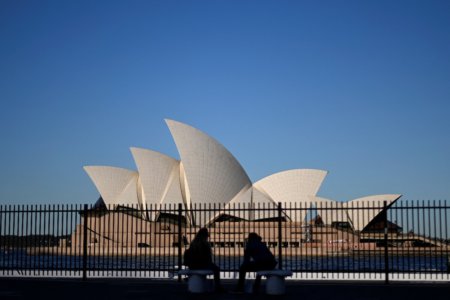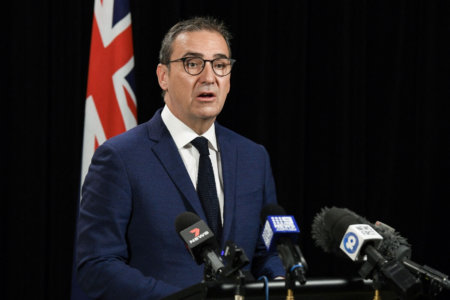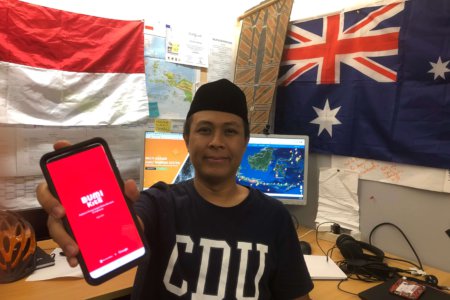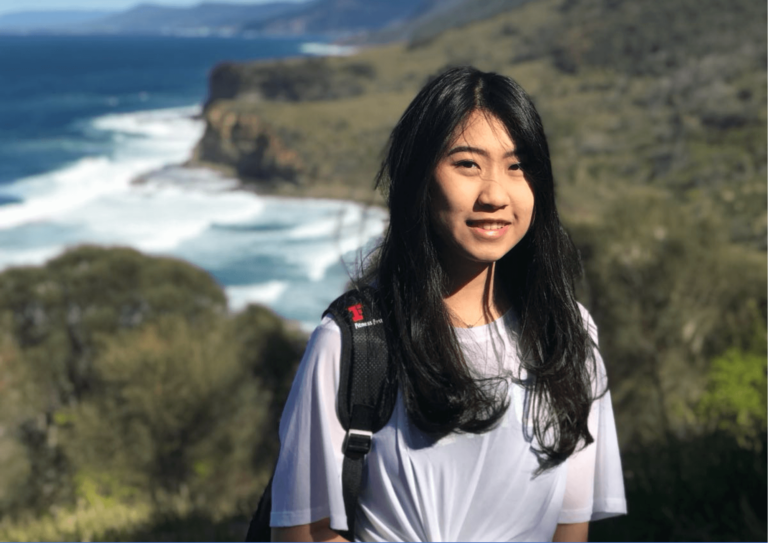
Like many international students enrolled in Australian universities, Stella Patricia Winter is over remote learning. She tried but quit after a semester. The Bachelor of Commerce student needs to enter Australia and go back to the University of Sydney as soon as possible as many of her classes are best learned in person.
However, a new pilot programme by the New South Wales (NSW) government will allow international students to return in July this year after being shut out since March 2020. The NSW pilot plan aims to see a limited number of students arrive and stay in purpose-built student accommodation that follows strict quarantine requirements that all travellers have to go through. This has given new hope for Winter and many others who are on the same boat.
Below we speak to this Indonesia student via email on what life was like studying in Australia, her advice to other remote learners and what she thinks of the NSW pilot programme:
What made you choose to study in Australia? Do you think it would have made a difference if you studied at a local institution?
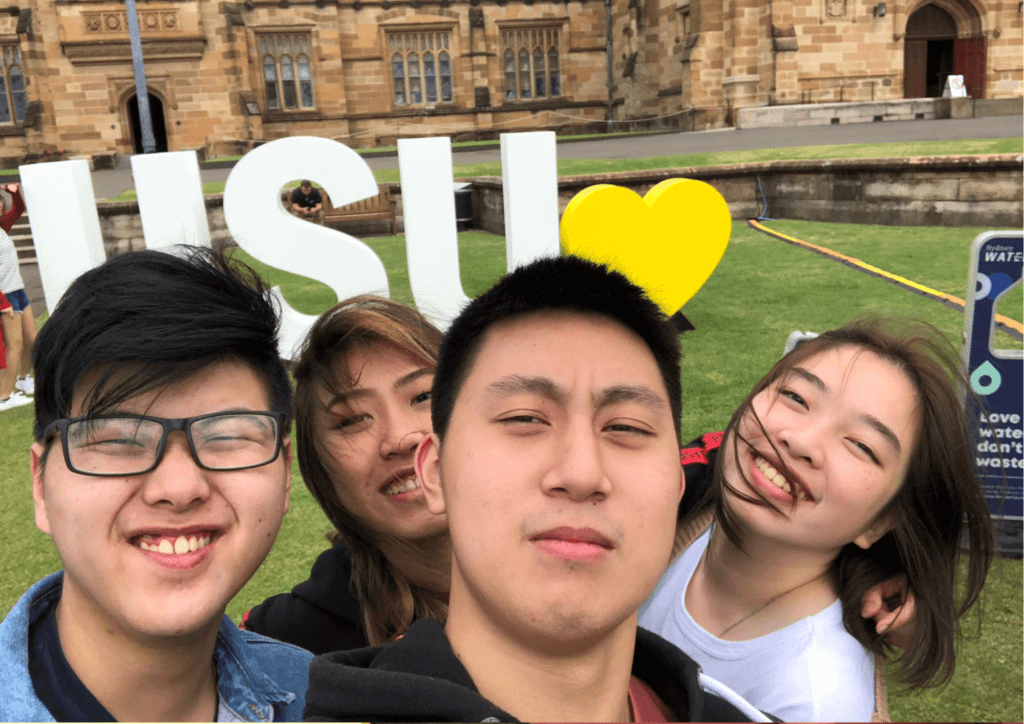
“When I was 15, my parents brought me to Sydney to look at unis to convince me so I guess I fell in love with the University of Sydney during the tour,” she says. Source: Stella Patricia Winter
At first I didn’t really choose Australia but my mum loves it so much (and we also have a couple of family friends in Sydney). When I was 15, my parents brought me to Sydney to look at unis to convince me so I guess I fell in love with the University of Sydney during the tour.
It would be difficult had I chosen to study at a local institution because studying abroad opens your perspective of the world. I get to meet a lot of people from diverse countries and backgrounds. I guess it made me realise the world is much bigger than what I’ve imagined.
How long have you been studying remotely and how do you overcome the challenges you face?
I started studying remotely from January last year in an exchange programme at the University of Exeter in the UK until June. After a stressful semester of studying remotely, I decided to suspend my studies.
My main reason was because of my study environment. Back in May last year, I broke my laptop’s screen and I also had an exam that day. It was a very stressful experience because all of my files were on that laptop.
Ever since, I’ve had to connect my laptop to my home TV for it to work. I couldn’t fix it because my country doesn’t have the material needed. Basically, for a whole semester, I couldn’t turn on the webcam, work properly and had to study in the living room (not an optimal studying condition).
I have since then bought a new one. I am going to try and continue my studies next semester in hopes to return to NSW under the pilot programme for international students.
Do you think this new pilot programme will finally allow you to enter Australia and get back studying?
I don’t think I will be one of the first few students to be brought back by this programme. Allowing 250 students is better than none. It’s one step closer for students to be able to set foot in NSW.
I do think that there is a lack of transparency when it comes to Australia’s travel restrictions. This does not include just students’ return, but it also involves the return of partners, parents and temporary residents of the country.
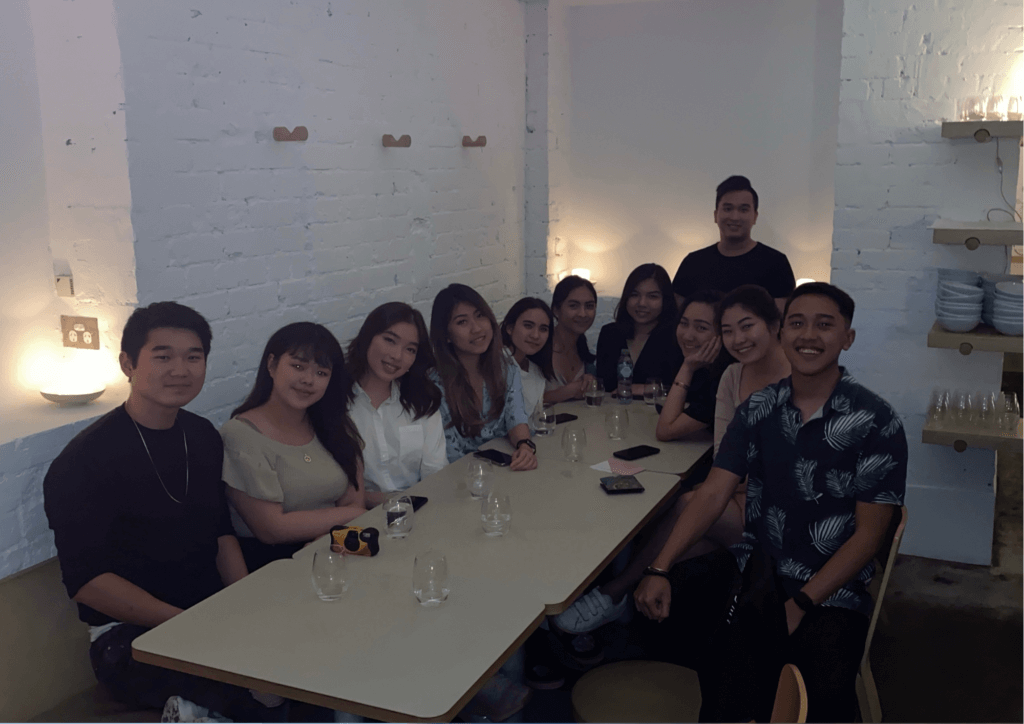
“It would be difficult had I chosen to study at a local institution because studying abroad opens your perspective of the world,” Winter says. Source: Stella Patricia Winter
It has been one and a half years since I left Australia and throughout this time, they have given false hopes for students returning each semester. I’ve tried exemptions (since I have a partner there) but none of these have worked out. I am just hoping this time the federal government would approve the programme and start bringing students back.
What is the process looking like to get back to studying in Australia?
The University of Sydney has not provided a list of the process yet although they’ve sent emails regarding the return of international students. Students that are chosen or are eligible for this programme will be contacted by their institution soon.
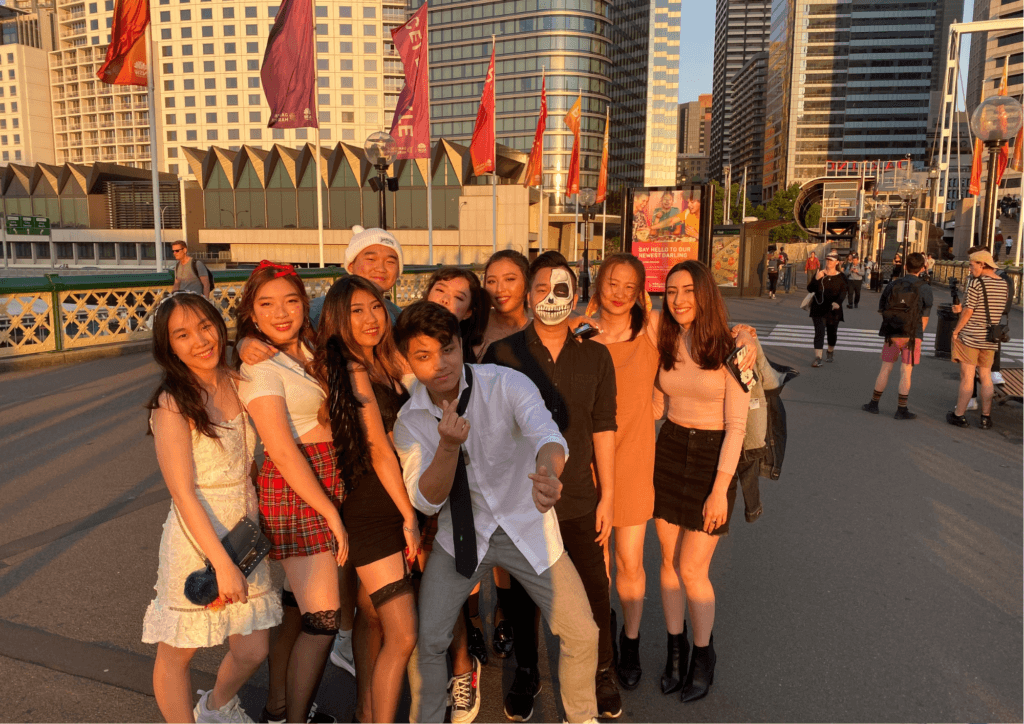
Allowing 250 students is better than none. It’s one step closer for students to be able to set foot in NSW under this new pilot programme. Source: Stella Patricia Winter
I’m sure the priorities will go to students in their last year of uni (medical or postgraduate students). As for quarantine and flights I think students will have to pay for it themselves. At this point, I think most students won’t mind anymore.
Where does your passion for economics and commerce stem from?
I’m currently enrolled in a bachelor of commerce and advance studies programme majoring in finance and economics. My major is fun but very challenging. I would say it’s more difficult than my economics subjects.
There is no big backstory behind why I chose these majors because I used to hate economics. But after studying it at the University of Sydney, I began to enjoy these subjects based on my curiosity after diving deeper into specific subjects. These included: behavioural economics, development economics and game theory.
Tell us about your language programme in Taiwan.
I went to Hualien, Taiwan for three months before I started studying in Australia. Overall, it was a great experience and I met some of the most amazing people. I do have a Chinese language background with my family.
After three months, my Mandarin skills did get better. While I was in Sydney, I used this skill at my job in customer service.
Walk us through your exchange programme in the UK.
I began this programme back in January 2020 but due to COVID-19, my time in the UK was cut short. When I was there the weather was very unpleasant but despite that, I had one of the best times of my life.
I met a lot of people, lived with amazing girls and experienced a new environment too. I think everyone has different experiences. Although, for me, what I liked most about the UK were the people. Everyone was friendly and welcoming.
What do you like most about Australia?
The lifestyle. I can’t describe it but I do feel very happy when I’m there. The people, food, area and everything in general. I guess I can be myself when I’m there because people are very open-minded. I also become more motivated because I’m surrounded by supportive people.
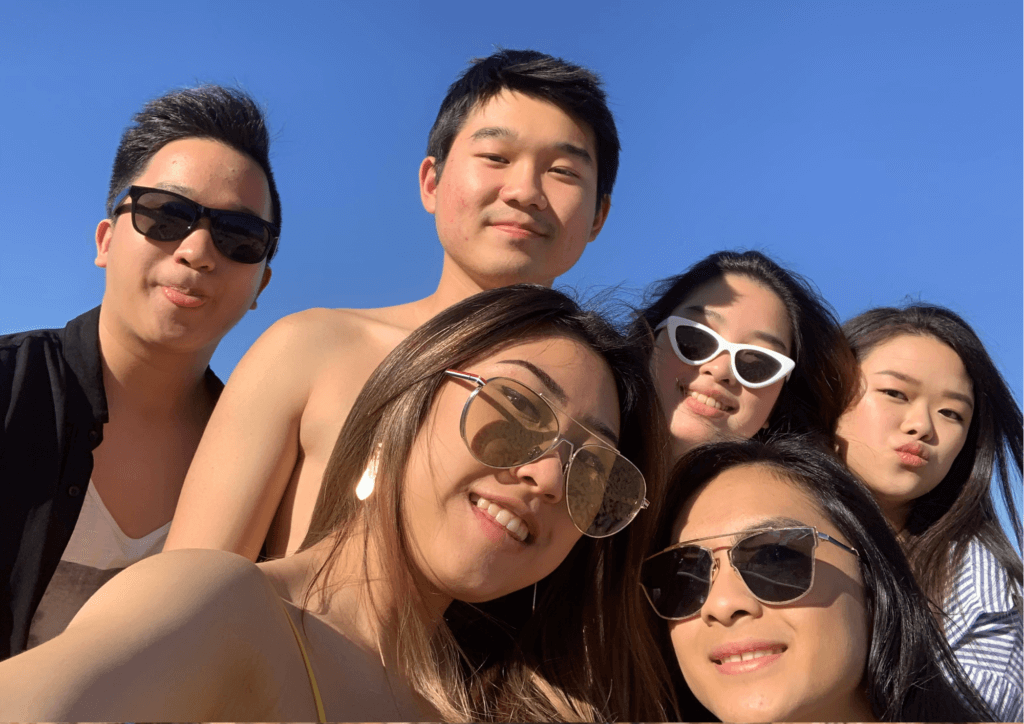
Her advice for international students? “Most students in Australia are very friendly and they also save time for you so you feel less alone. My last piece of advice would be to have fun!” Source: Stella Patricia Winter
What’s the local food compared to home like? Tell us your most and least favourite.
I love all the food in Sydney so far so I don’t think I have any least favourites. Although my favourite is “Ma La Tang” (Chinese street food) but am not too sure I can say it’s local.
What tips can you share on how to budget as a student abroad?
Depending on where you study you’d have a different budget. Even within Australia, depending on each state, you’d have to have a different budget. In my personal experience, I’d spend around AU$1,200 to 2,000 a month not counting rent for day-to-day living.
This includes transportation (Adult Opal Card since Sydney doesn’t have student cards for international students), food (mostly eating out), entertainment and others. Rent would be around AU$250 (shared) and AU$400 (single room) per week.
Again, this would be dependent on where you decide to stay. In total, I’d spend approximately AU$2,500 a month. This is different from my friends who are studying in Melbourne though. I’ve heard they would spend around AU$800 to 1000 a month (excluding rent).
What’s one thing you’re looking forward to once you’re back studying in Australia?
This might sound weird but I can’t wait to ride the public transport. In my home country of Indonesia, we don’t usually use public transport.
I miss going around and walking from one station to the other. I also miss studying in the library with my friends. We would usually stay up all night days before the exam and I want to experience that one last time before I graduate.
I also miss working as a cashier in customer service because I get to talk to my customers. There are a lot of things I miss about Australia.
What advice do you have for international students looking to study in Australia?
Australia is a great place to study. But before you start your semester please do your research. Most students choose Australia not only for the education, but also for the opportunities and experiences which can be costly.
Despite my uni doing a great job at handling the learning, I still don’t think it’s worth the AU$50,000 fee for online studies.
If you’ve decided to enrol this year, start reaching out to other students and join societies. Most students in Australia are very friendly and they also save time for you so you feel less alone. My last piece of advice would be to have fun!








